20 Movies: Children of Men
“Very odd, what happens in a world without children’s voices.”
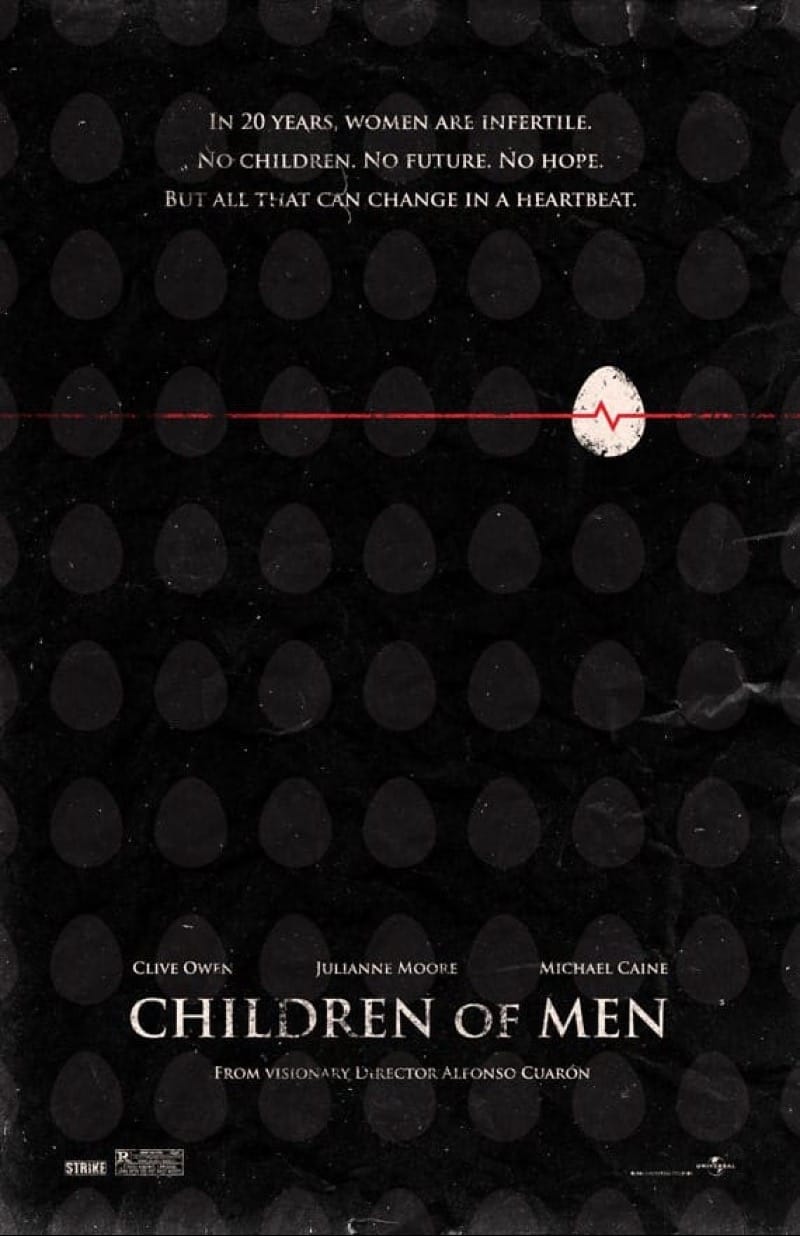
With global infertility threatening all of humanity with extinction, a disillusioned bureaucrat must shepherd the first pregnant woman in almost 20 years to safety.
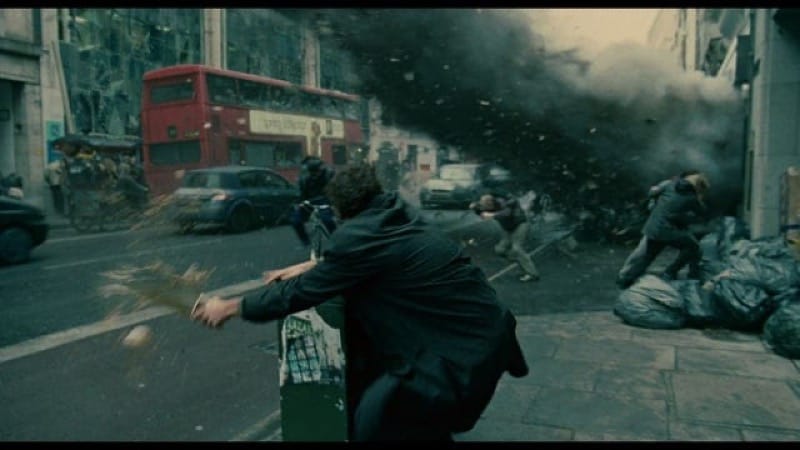
So, while we sit all here and wait for America, that rough beast, its hour come round at last, to slouch on towards Bethlehem to be born, its too-slowly realized apocalyptic revelations destined to forever change this world for the worst… I'm back again to posting about my 20 most influential movies.
This series all came about as a result of a social media trend-game. The idea was to list 20 movies that greatly influenced you, then post the poster of each movie, one per day, for 20 days. No reviews, no explanations, just the posters. So I did that, but I also wanted to talk about them a little bit...
So I have been.
And now here we are at number thirteen.
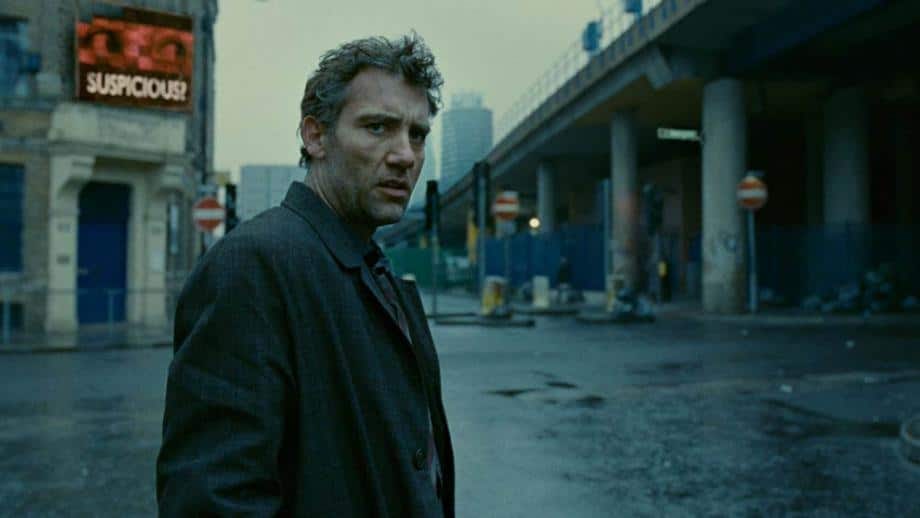
2027.
It has been eighteen years since Earth last saw the birth of a human child. In the time since, global society has collapsed. Years of natural disasters, endless wars, and devastating acts of terrorism have rendered most of the world uninhabitable or a lawless no-man’s-land. Humanity stands on the brink of extinction.
The United Kingdom is one of the few nations that still has a functioning government, but it has become a totalitarian police state in which the wealthy live in luxury, while immigrants and undesirables are arrested and either imprisoned, deported, or executed in concentration camps.
Theo Faron is a former activist turned cynical bureaucrat. On the day that Baby Diego—the youngest human on Earth at 18 years of age—has died from a stabbing, Theo is snatched off the street by the Fishes. The Fishes are a militant immigrant-rights group that is led by Theo's estranged wife, Julian Taylor. Once young, wild in love, and fighting together for a better world, they separated after Dylan, their young son, died in the 2008 flu pandemic.
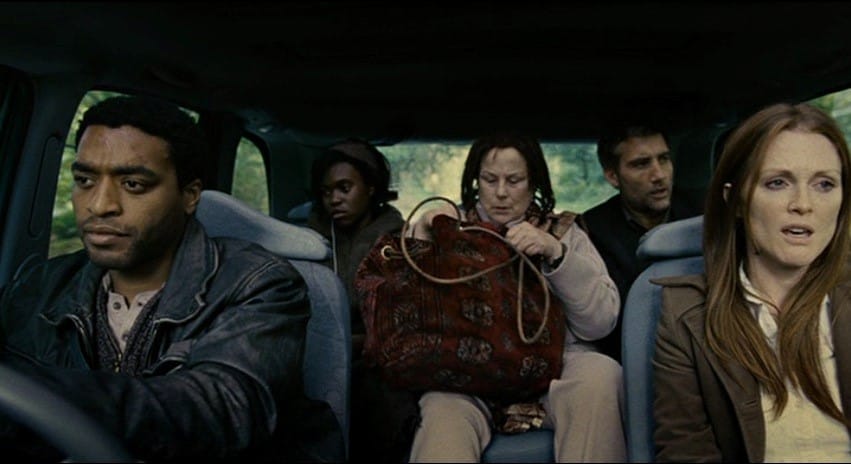
But now Julian needs Theo’s help.
Julian offers to pay Theo to get official transit papers for a young refugee woman named Kee. She knows Theo can get these papers from his cousin. Theo’s cousin is a government official in charge of a program that saves and stores famous pieces of art from around the globe, presumably by force, before they are lost forever in the chaos of global collapse. Theo is able to get the papers, but only as a document paired with his own, so now he must be Kee’s escort.
Luke, a local Fishes leader, drives Theo, Kee, Julian, and a former midwife named Miriam, across the English countryside, but they are waylaid by an armed gang of bandits. Julian is killed during the ambush. Fleeing the scene, they are spotted by the police, and when the police stop their car, Luke kills them. Soon enough, their crime is on the news, and the group is forced to take refuge at a Fishes safe house. And it’s there Kee reveals her secret to Theo, despite Miriam’s objections, because Julian told her that the only person she should trust is Theo.
Kee is the first pregnant woman in 18 years.
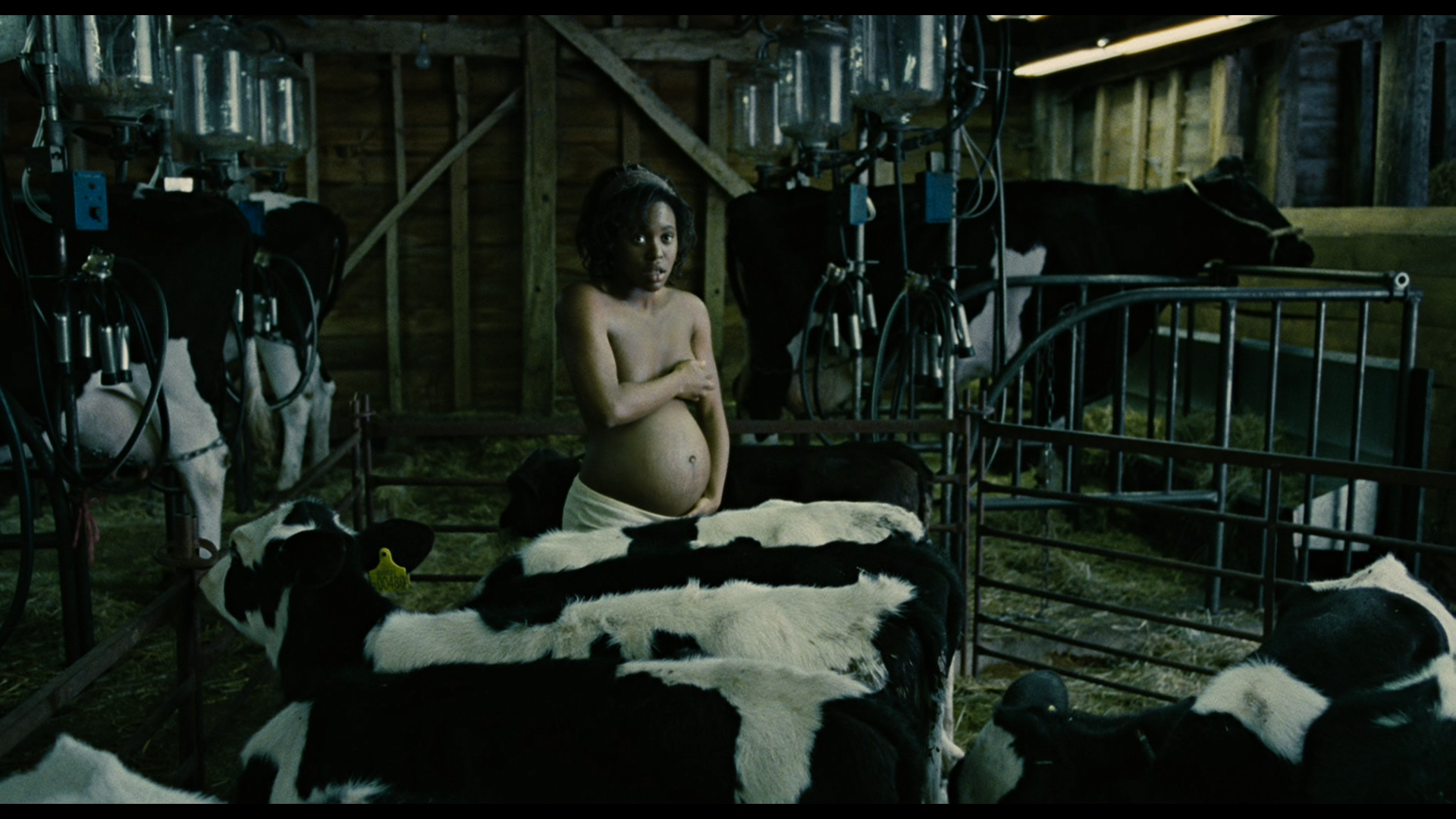
Julian had intended to deliver Kee to a secret organization called the Human Project. A scientific research group said to be hiding in the Azores, something that most people—including Theo—consider to be nothing but a rumor, the Human Project is supposedly dedicated to finding a cure to humanity's infertility.
The leadership of the Fishes gather at the safe house and vote Luke to be the new leader. But that night, Theo overhears Luke and his lieutenants, and discovers that they not only orchestrated Julian's death, all so that Luke could become the leader, they also intend to murder Theo, and then to use Kee's baby as a tool for their own political ends. Theo quietly wakes Kee and Miriam, and they manage to escape in the pre-dawn hours, driving to the secluded forest hideaway of Theo's aging hippie friend, Jasper Palmer.
Jasper is a recluse and a former political cartoonist turned pot farmer. He takes care of his wife Janice, a former investigative journalist, who is now catatonic and wheelchair-bound, after the British government tortured her years ago.
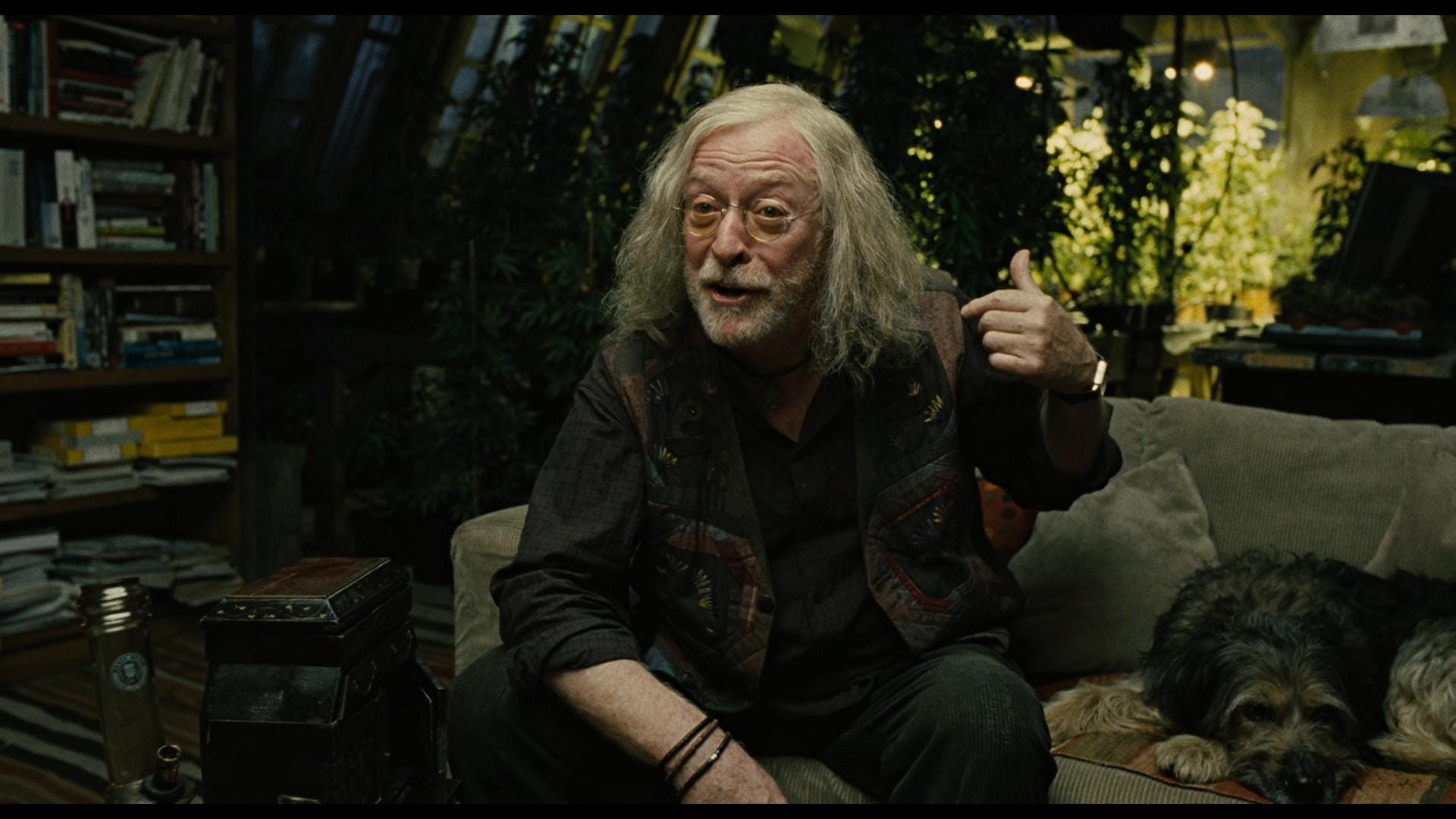
The group plans to get Kee to the Human Project ship, the Tomorrow, which is scheduled to arrive at the sea buoy just offshore of Bexhill, a notorious immigrant detention centre. Jasper plans to use Syd, an immigration officer to whom Jasper sells pot, to smuggle them into Bexhill as refugees, and from there, they will take a boat and rendezvous with the Tomorrow.
But early the next day, the Fishes find Jasper's house, and the group has to flee. Jasper stays behind to stall the Fishes, and is murdered by Luke as Theo watches. Theo, Kee, and Miriam meet with Syd, who helps them board a bus to the camp. Kee's water breaks just as a guard enters the bus to randomly select people for execution. When he notices Kee hurting, Miriam distracts the guard and is taken away. After Theo pretends to alert the guard to pee on the floor, the guard leaves in disgust, and Theo and Kee must watch helplessly as the bus pulls away, and a bag is placed over Miriam’s head as she is forced to kneel.
As they enter the camp, Kee is staggered by labor pains. They meet up with an old Romani woman named Marichka. She is Syd’s contact in the camp, and provides a room for them.
That night, Kee gives birth to a baby girl.
The next day, the camp has erupted in violence. Fishes broke in during the night, the camp’s residents have taken up arms, and British troops have entered in force to quell the uprising. Surrounded by fighting, Theo, Kee, and Marichka stumble through the conflict, only to be ambushed by the Fishes, who take Kee and the baby from Theo. But the Fishes end up trapped in a building, in a pitched firefight with British soldiers. Theo has to dodge bullets and rockets and explosions in order to get to Kee and the baby out.
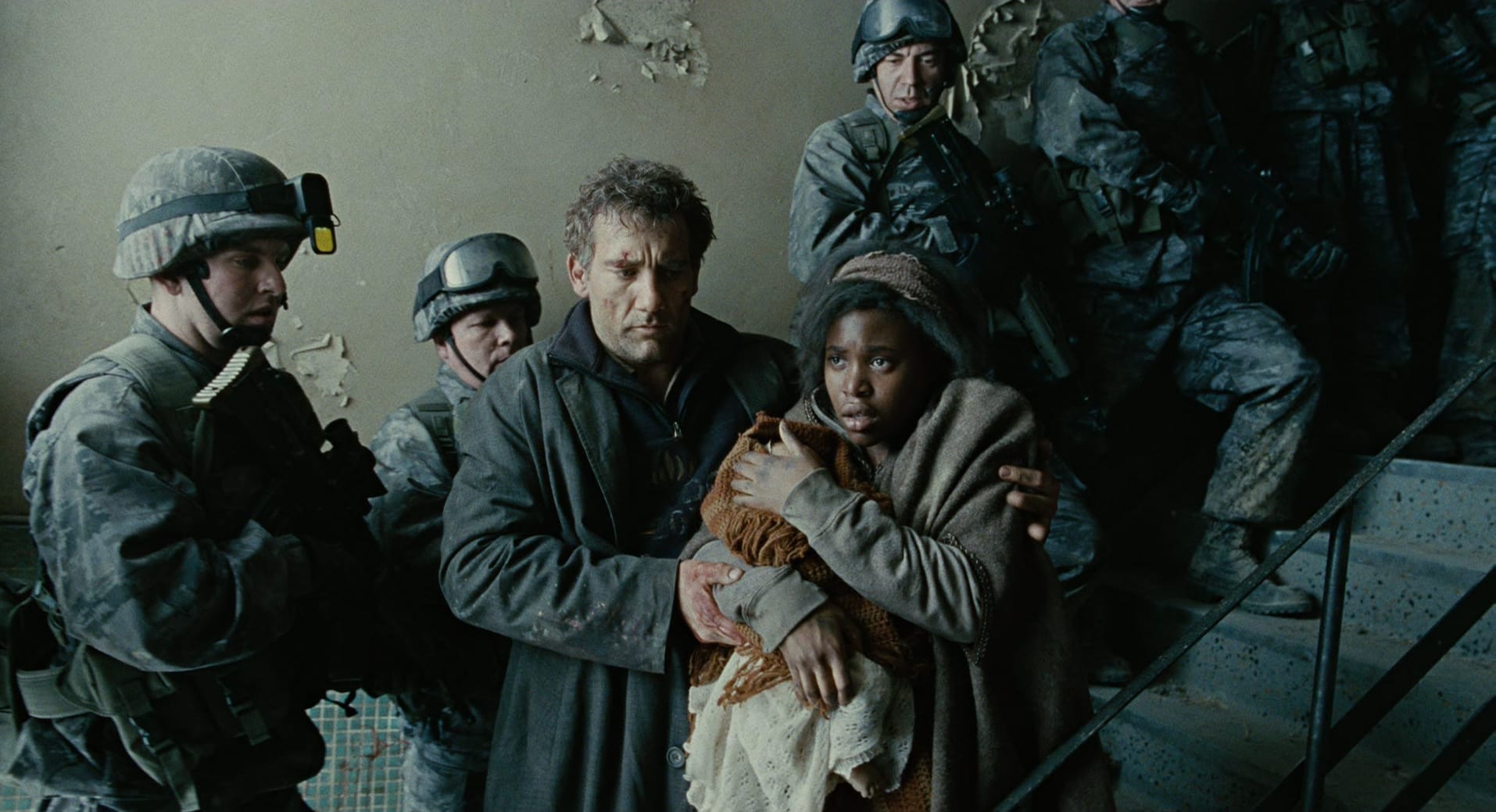
Awed by the crying infant, the first child in nearly 20 years, the British soldiers and Fishes, and all the people caught in the middle, temporarily stop fighting and can only stare as Theo and Kee and the baby leave. In their wake, the battle rages back to life. Marichka leads them to a rowboat, but she stays behind as they depart.
As British fighter jets zoom past overhead, bombing the Bexhill camp, Theo rows Kee and the baby out to the red light of the sea buoy, the rendezvous point cloaked in a heavy fog.
That’s when Theo tells Kee that he’s been shot and is bleeding out. While they wait in the rowboat on the open water, he teaches Kee how to burp her baby. She tells him she will name the baby girl Dylan, after Theo's and Julian's lost son. He smiles weakly, and loses consciousness just as the Human Project ship, the Tomorrow, approaches through the fog.
As the screen cuts to black, children's laughter is heard.
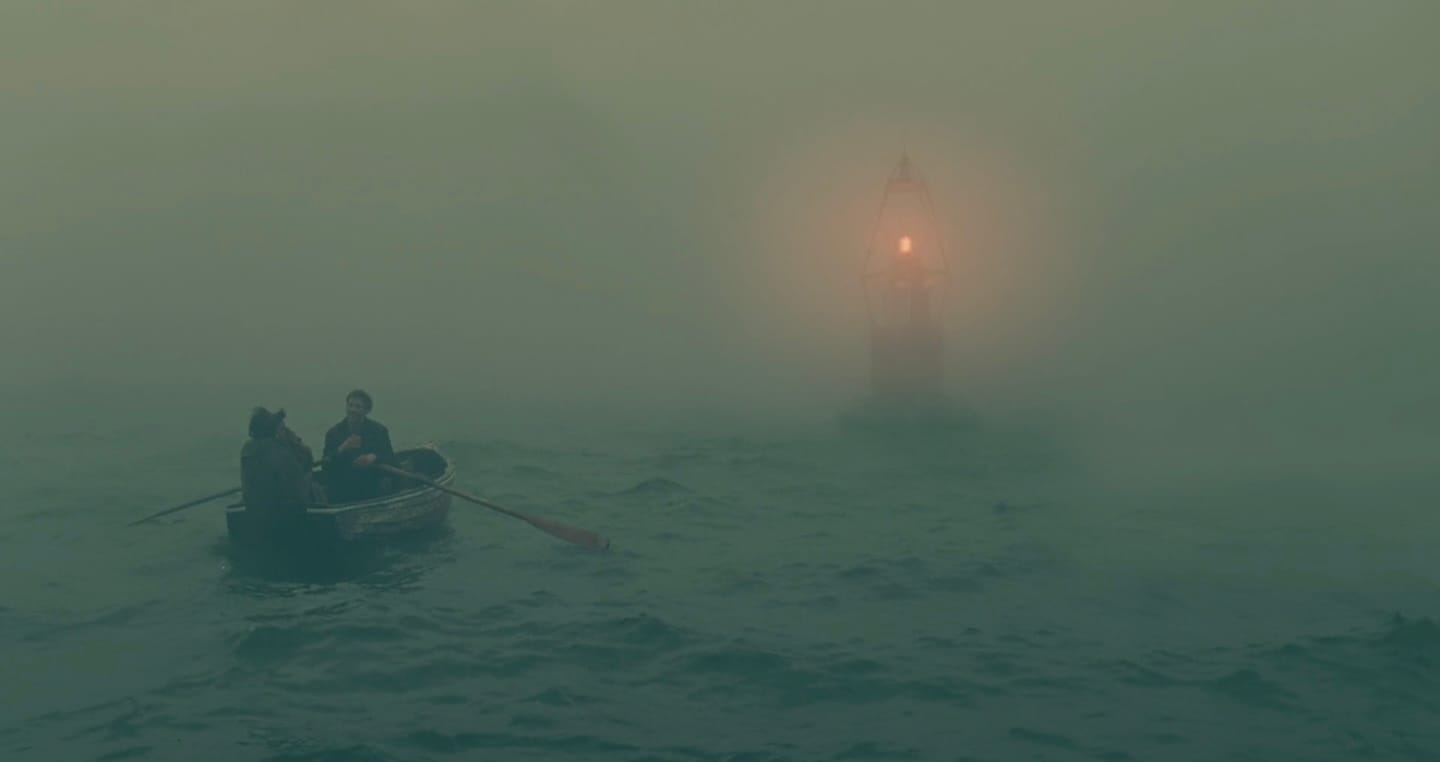
Loosely based on the novel of the same name by PD James, Children of Men premiered at the 63rd Venice International Film Festival in September 2006. It debuted in a limited release in the United States in December 2006, and it was nominated for three Oscars, three BAFTAs, and three Saturns, amongst others, but won very few of them. It grossed $35,552,383 domestically, and just $70,455,770 worldwide. So, with a reported budget of 76 million, Children of Men didn’t exactly light the world on fire with general audiences, but if you ask me, it’s one of the greatest films of all time.
The book has a lot of biblical imagery and themes that can still be seen in the film, but they aren't featured as heavily. I’m glad for this, because I’m not interested in that aspect in general, so I appreciated how the film leaned more on the story's fascist themes and imagery instead. I will say that it’s very interesting to note how easily fascism and Christianity seems to go together. It's so natural, like they were made for each other, like some kind of racism-and-ethnic-cleansing-loving version of peas and carrots, huh?
Anyway…
Besides just generally being a film that works on every level, whether as a violent chase film, a political thriller, a cautionary tale, and a sophisticated human drama about hope and faith at the end of the world, all while posing the question: “Is this what we are all headed for?“ (Yes, it is.) On top of all that, Children of Men is also a technically brilliant film. In fact, for most people, it’s maybe best known for its multiple “single-shot” sequences.
They’re not truly 100% “single-shot” of course, not like the Copa Shot in Goodfellas. The reality is, they are the result of several takes carefully blended together in order to create the illusion of one single continuous camera shot. But still, the Hollywood magic here is so good they sure seem like they are, so close enough. Besides, even if they do use CGI and the classic “seamless cuts” tricks, these kinds of sequences are extremely difficult to film, and the simple fact is… as they appear in the film, they’re definitely no less powerful in the moment then if they had actually been one continuous shot.
The longest of the scenes are when Kee gives birth after entering the Bexhill camp, which is 3 minutes and 19 seconds. Then there's the forest ambush where Julian is killed, which is 4 minutes and 7 seconds long. And then there's the big climax, the Battle of Bexhill, in which Theo is captured by the Fishes, escapes, then runs down a street and through a building, all in the middle of a raging firefight, an intense 6 minute and 18 second long experience. They are all fantastic moments, engrossing, tense, terrifying, all of which is clearly communicated by the fact that they are one long continuous moment, so they're well worth the effort to create. This effort did concern the studio, of course, as these kinds of shots are a very challenging and time-consuming process, the kind that can cause productions to very quickly and very suddenly run far over budget, all while quickly falling behind schedule.
But still, they did it, and the results are astounding.
Especially once you know that the coffee shop scene was apparently two different takes shot over two days, that the car ambush was six separate shots done at four different locations, which boggles my mind, and that it took fourteen days to get ready to shoot the Battle of Bexhill, and around six hours every time they wanted to reshoot it. Filmmaking is an already complex dance that requires many moving pieces, but doing one “single shot” sequence, let alone multiple ones, is adding an additional intimidating undertaking on top of the regular every day undertakings that normally have to be dealt with.
This is why there’s a moment still in the film where blood splatters the lens. And while its definitely something that adds to the intensity, as well as the “realism” of the whole moment–which is how cinematographer Emmanuel Lubezki convinced director Alfonso Cuarón to leave it in–the reason it's still there most likely came down to a question of “do were really want to reset everything just for that?” In the end, it was probably too much of a hassle returning to first positions, so they kept it in. Although, legend has it that Cuaron did shout ”cut!” in that moment, but no one on set could hear him over the explosions.
That’s probably not true, because obviously everyone would've had radios and ear pieces, so it's probably nothing more than a funny little legend, but watching that scene, and seeing the chaos of that moment... you could believe it.
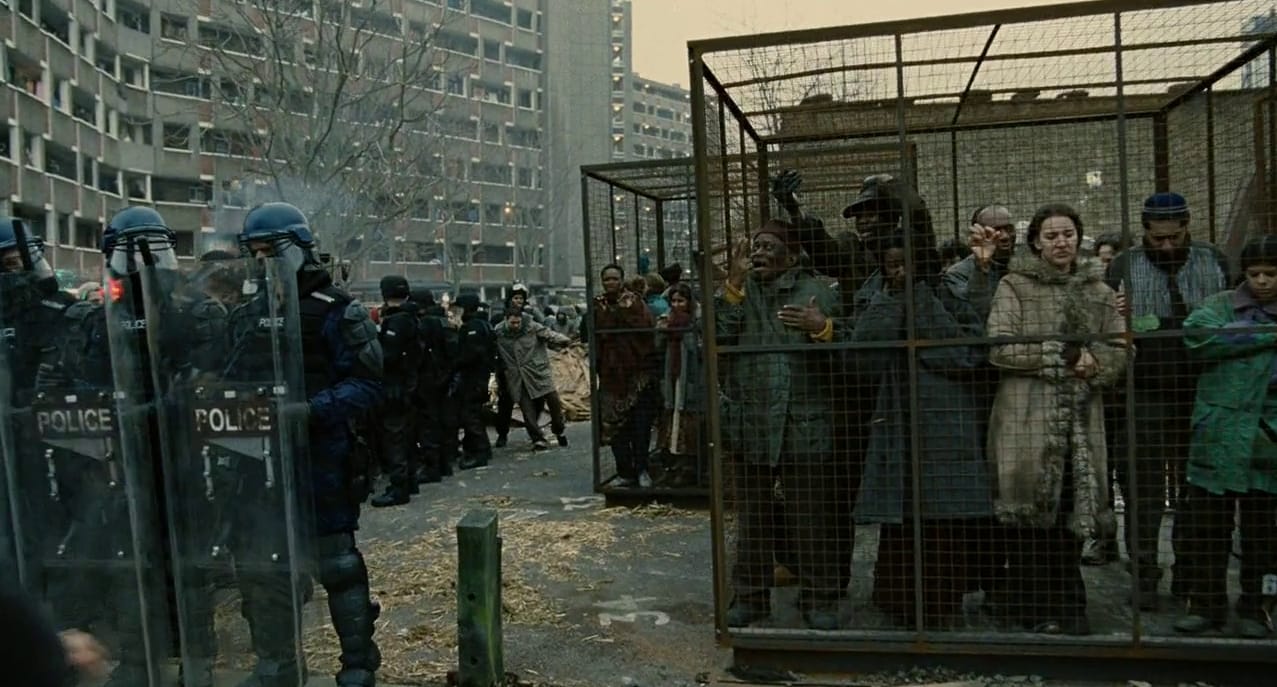
But more than anything else, Children of Men has a very terrifying day after tomorrow feel. Despite being made in 2006, and being set in England, and except for the whole infertility angle, watching it today, the film very much feels like an indictment of our own modern day society, and an eerily too-accurate picture of the direction we are heading as a country.
Which makes it all the more tense of a watch.
Especially as the film explores the idea of keeping hope and faith alive in the face of such overwhelming and constant despair. The book is also set in a society that is unable to reproduce, obviously, about which, it says this:
It was reasonable to struggle, to suffer, perhaps even to die, for a more just, more compassionate society... but not in a world with no future where, all too soon, the very words 'justice', 'compassion', 'society’, 'struggle', 'evil', would be unheard echoes on an empty air.”
Sounds like home, right?
But then, it’s always been this way, right? This country was founded on violent theft and murder in the name of divinely-bestowed racial entitlement from the very first moment the very first shit-encrusted European shoe splashed down in the East coast surf of what would eventually be the United States of America. But after Trump and COVID, an era where the dominant discourse always centered on immigration and increasing border enforcement, not to mention increased police presence, as well as the "danger" posed by Others (meaning: anyone who isn’t cis-gendered, straight, white, and Christian), some might call this film "prescient."
Especially now, less than twenty years from its original release, as we find ourselves living in a country that openly prioritizes a vast wealth inequality, a status quo that is protected by brutally racist law enforcement that eagerly acts at the behest of the privileged racist class who hold their leash, which is supported by a deliberately ignorant, perpetually one-paycheck-from-the-streets, rabid, zealotic demographic who, at every opportunity, prioritizes its own hatreds and bigotries against people of color, GLBTQIA communities, immigrants, the disabled, and any other marginalized community that dares to suggest that they are people too, and therefore are just as deserving of the same rights and privileges as everyone else, reliably choosing to inflict harm over caring for themselves or others, all of which is now currently being enshrined as law...
So maybe that’s why the world of this film, and the characters within it, seem so convincing, so real. Maybe that’s just me. Your mileage may vary. But if nothing else, I think we can all agree that the film is definitely right about one thing….
White people with dreadlocks are never to be trusted.
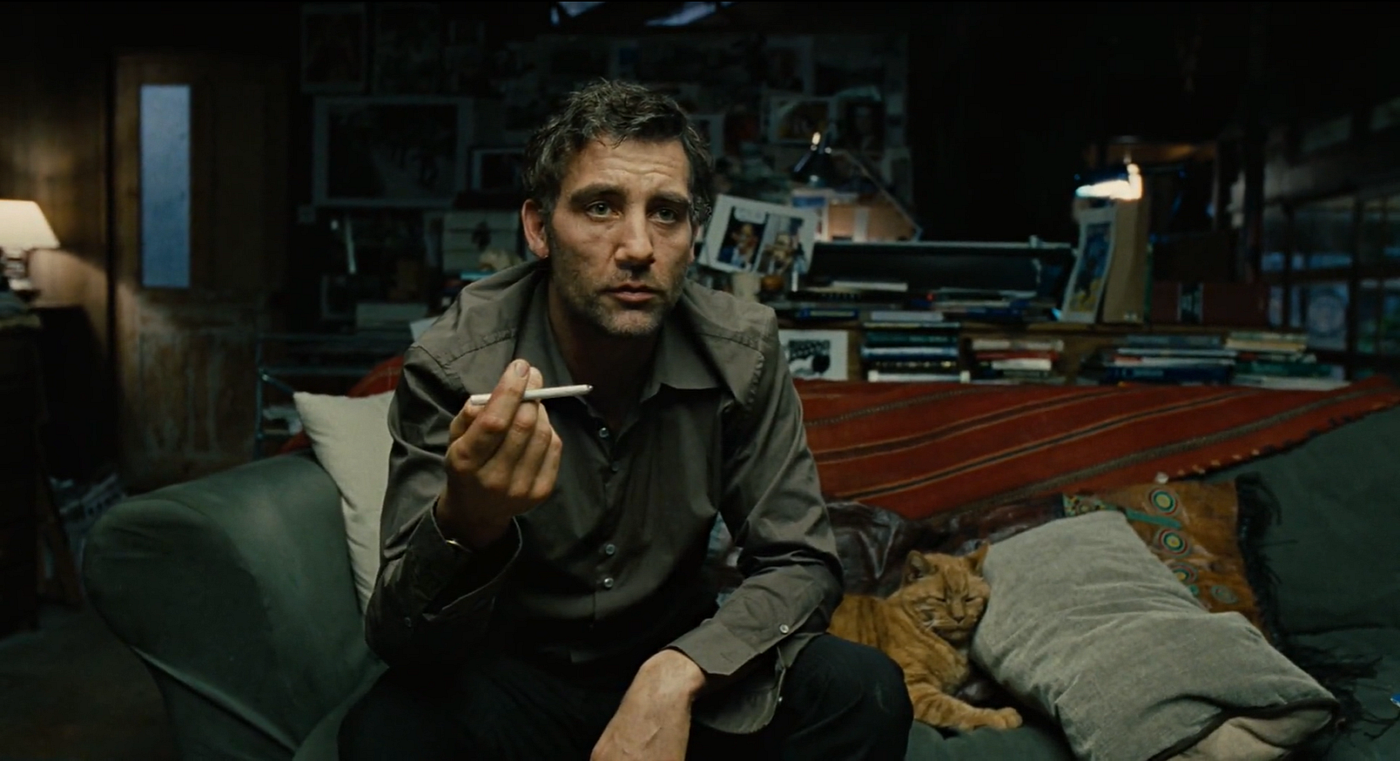
And not only do I appreciate the film’s unflinching eye towards a fascist society and its roots, but I also liked how the film doesn’t bother providing an explanation for the cause of humanity’s infertility.
Cuaron apparently did this on purpose…
"There's a kind of cinema I detest, which is a cinema that is about exposition and explanations ... It's become now what I call a medium for lazy readers ... Cinema is a hostage of narrative. And I'm very good at narrative as a hostage of cinema."
This lack of explanation allows the concept of mass infertility to be used as a metaphor for the loss of hope, which is why the Human Project’s ship is called The Tomorrow, right? It’s hope, the possiblity of a better tomorrow. Who knows what it means. Who knows what happens next. Who knows. But seeing that ship appear out of the fog, that’s just enough so that a few of us out there are able to leave this very dark, very scary, and very tragic film feeling like… hey, who knows, maybe things will turn out all right.
That’s fantastic storytelling. That’s fantastic filmmaking.
I also love how the special effects, the “day after tomorrow” type sci-fi details, all seamlessly blend into the world. The billboards, the computer screens, and all the TVs in the background, even the cars, all walk this line between being familiar, and seemingly contemporary, but also futuristic. Even better, for the most part, they all give us a small glimpse of what else was occurring in the rest of the world, and all without centering the details. That's fantastic world-building. I love it, especially when our glimpses of the past are all confined to tacked-up yellowing newspaper articles and old photos (mostly at Jaspar’s house). These things not only help to make the world of the film feel more real, but just by their mere presence they give you context of what happened, and where it all went wrong. You can see how their world got from where it was, to where it is now. It's evident all around them. And it's because, the world feels organic, like it's a natural extension of our own world. Futuristic, but shabby, used, and run down, and as a result, it believably feels like it truly does take place “the day after tomorrow.”
Or in this case… just two years from now.
It's really impressive work. And best of all, what these details convey the most clearly is that this a world that is ending not with a bang but with a long tired sigh of defeat, and a resignation of its accepted ending. It truly is the bleakest of worlds, a sad and worn out joke, our greatest possible failure, and that is what makes it all seem so wretchedly, so recognizably human.
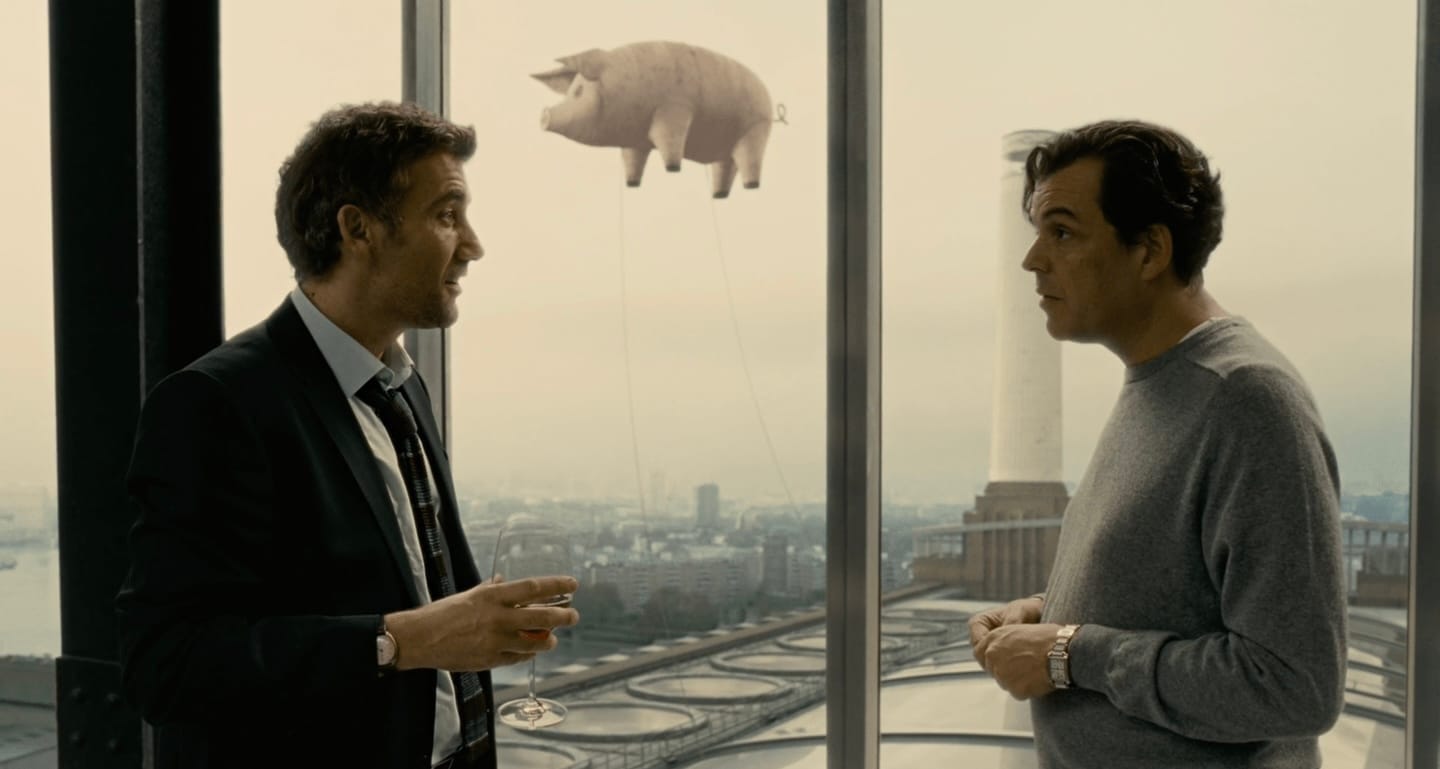
I love this film. It’s why I always know where my shoes are, just in case.
I loved it the very first time I saw it in the theatres when it opened in 2006. Now, on the far side of many repeated viewings, I love it even more. Children of Men is indisputably great. Not only does it seem even more relevant now than it did when it was first released, there are few American films out there of such clear-eyed and incredible beauty, such unflinching sorrow, and such terrifying, but also incredibly exhilarating, action. Like I said, as far as I'm concerned, Children of Men is one of the greatest films ever made...
If you haven't seen it, you should.
